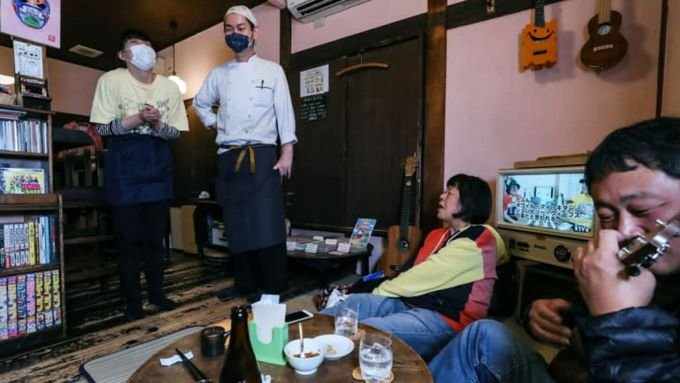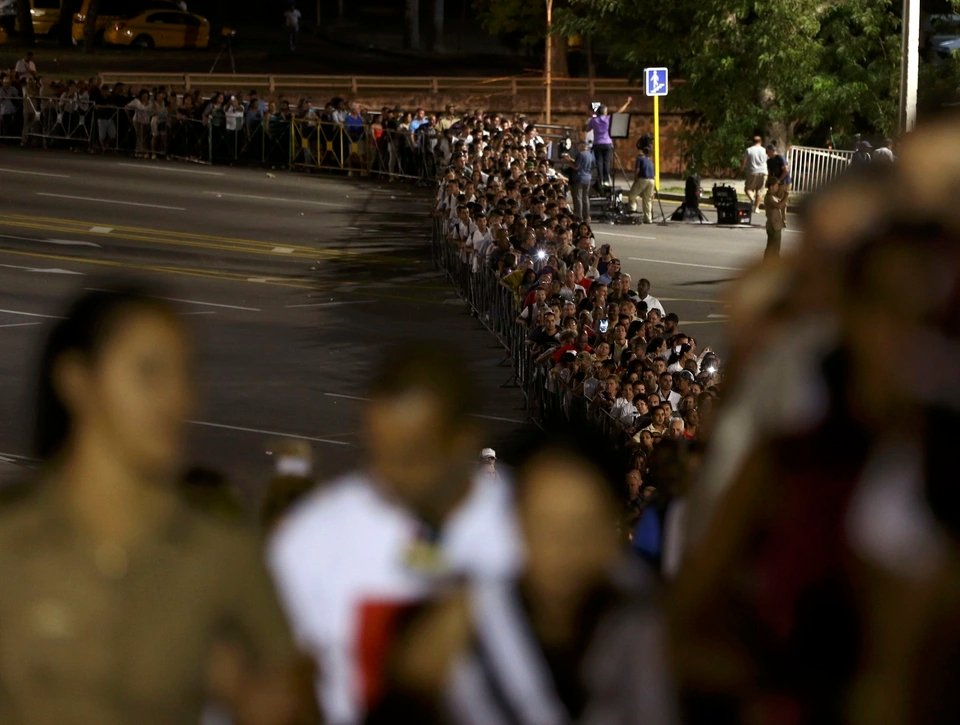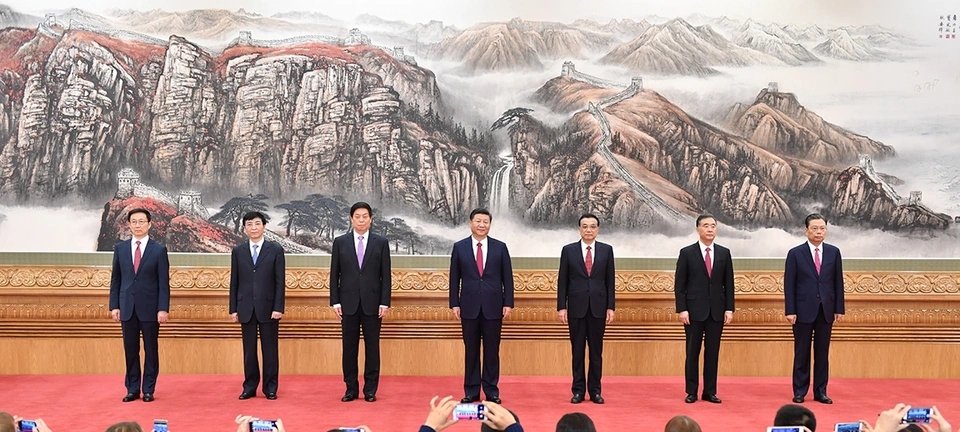He remembers the fear he and his wife felt when they saw the note taped to their door at the end of April.
`For safety, please limit the opening of live music bars until the emergency is over. If I find you open, I will call the police,` a neighbor wrote.
That day, Murata and his wife were streaming a performance online following instructions from the Tokyo metropolitan government.
`I’m very sad and worried because I don’t have any friends around the neighborhood,` he said.
Murata was not surprised when live music bars and crowded and air-tight nightclubs became epidemic clusters.
He compares this to World War II: `During the war, people were harshly criticized just for wearing nice clothes or singing. We had the same thing. Japanese people haven’t changed much.`
Japan uses the term jishuku keisatsu, meaning `self-police`, to refer to people who specialize in `hunting down` and correcting individuals or businesses that do not comply with social distancing.
In fact, the pandemic and government control efforts have created a stressful situation, affecting the economy and mental health of people around the world, including Asia.
According to the Indian Psychiatric Association, cases of mental illness in the country have increased by 20% since the lockdown was imposed.
Hiroaki Murata (second from left) and his wife talk to customers and musicians in a small pub in Tokyo, November 13.
Japan is considered one of the world’s models for disease control, with relatively low numbers of infections and deaths.
Strolling on the street, people quickly notice that most Japanese citizens wear masks, even though they are not forced to.
Some people believe that Japan cannot defeat the epidemic without possessing this unique social characteristic.
Naoki Sato, co-author of the book `Peer pressure — why Japanese society is so suffocating`, commented: `The pandemic sheds light on ‘public pressure’.
`Community pressure` (Peer pressure), or doucho atsuryoku in Japanese, is an invisible force that makes people follow an ideal standard in society, even though sometimes they do not really want or agree.
Unlike Western countries, where the government prevents the virus with regulations and punishments, Japanese people voluntarily comply with community rules.
This causes many people to be overwhelmed.
Yasuyuki Shimizu, head of the Japan Center for the Promotion of Countermeasures against Suicide, sees a close relationship between community pressure and suicide risk.
Shimizu also believes that Covid-19 can increase feelings of anxiety in women.
Author Sato believes that people’s extreme desire for independence is the factor leading to suicides.

Japanese people wear masks when going to work in Tokyo, November 2020.
The pandemic has caused some vulnerable groups of women to become even more panicked.
Although the epidemic has forced many businesses to change their working methods, the country’s unique work culture is still heavy.
An anonymous 20-year-old woman felt extremely pressured to attend an online drinking gathering.
According to the 2020 World Happiness Index Report, Japan ranked 62nd among countries, down 43 places compared to 2013. `There is a correlation between feelings of low self-confidence and levels of happiness,` professor
`In a collectivist community, it is often said that ‘every nail that sticks out will be hammered back in’. A surveillance society with people too concerned with what others think of them










